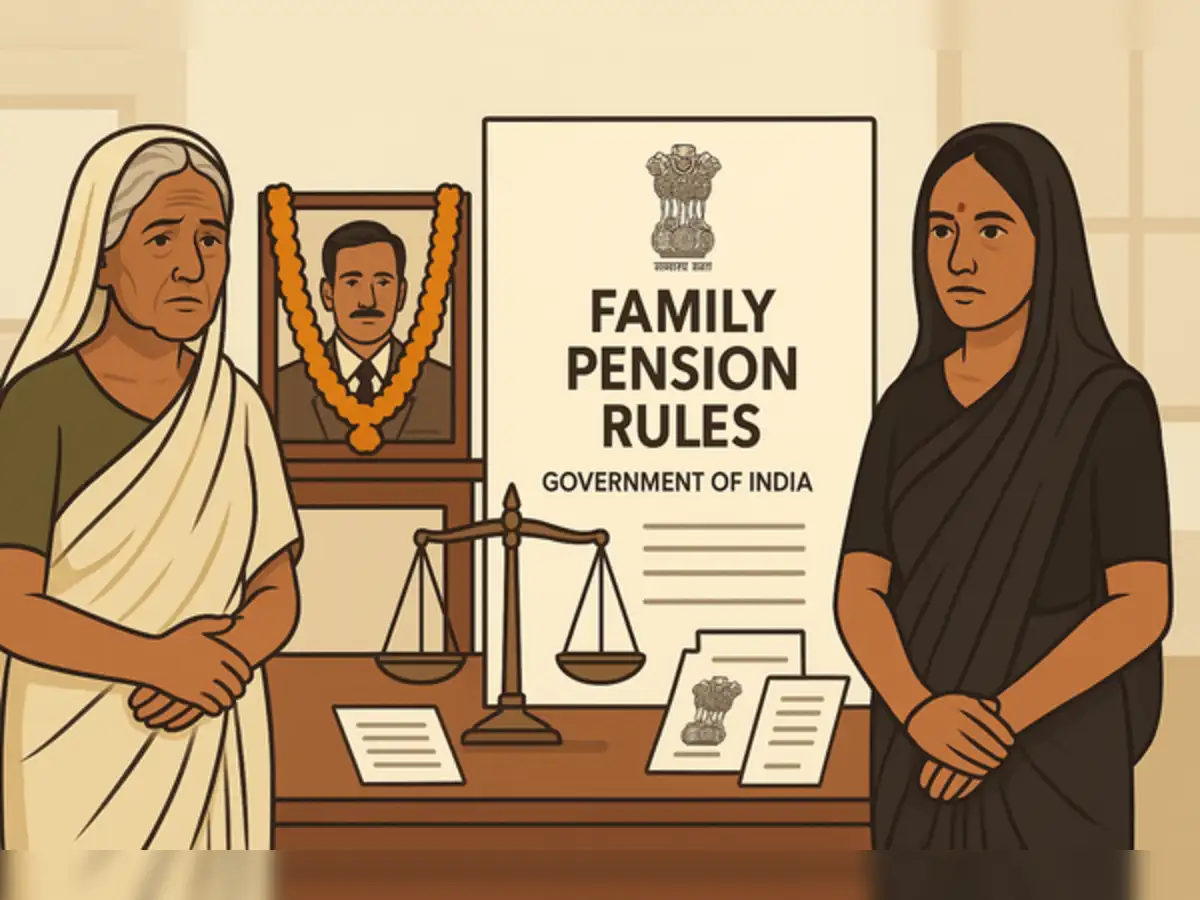Copyright indiatimes

The Department of Pension and Pensioners’ Welfare (DoPPW), under the Ministry of Personnel, Public Grievances and Pensions, has re-issued guidelines for all central government departments regarding the settlement of family pension claims in cases where a deceased government servant or a pensioner is survived by more than one wife.Income Tax GuideIncome Tax Slabs FY 2025-26Income Tax Calculator 2025New Income Tax Bill 2025The clarification, issued through an Office Memorandum (O.M. No. 1/1(33)/2024-P&PW(K)/9629) dated October 27, 2025, reiterates the provisions contained in the Central Civil Services (Pension) Rules, 2021, specifically Rule 50, which governs the payment of family pension.Also read: Major family pension reforms: Women-friendly rules for divorced daughter pension to childless widows pension, and moreWho gets pension if deceased government servant/pension had two wivesDoPPW defined the status of a widow/widower as saying: “Whereas the explanation to Rule 50(6) (1) of the CCS (Pension) Rules, 2021 states that - For the purpose of this rule 'widow' and ‘widower’ mean a spouse, legally wedded to the deceased government servant or the pensioner.”The department further said that as per Rule 50(8)(c) of the Central Civil Services (Pension) Rules, 2021:“If the deceased Government servant or pensioner is survived by more than one widow, the family pension shall be paid to the widows in equal shares. On the death or ineligibility of a widow, her share of the family pension shall become payable to her child or children who fulfill the eligibility conditions mentioned in sub-rule (9).”New pension rules: These female central govt employees can now nominate children for family pension instead of husbandThe position regarding the legality of marriage or spouse has already been clarified.For government employees/pensioners following Hindu Marriage Act, 1955. DoPPW said that the department had received several references seeking further clarification on issues where the government employee/pensioner is following the Hindu Marriage Act, 1955.To avoid delays in decision-making, the department has issued a clarification.“Having a second wife while the first wife is still alive is a violation of the Hindu Marriage Act, 1955, and is also inconsistent with the provisions of the Central Civil Services (Pension) Rules, 2021,” the statement reads.It further says, “Administrative authorities must exercise due diligence and proper judgment while examining such cases and interpreting the rules. In case of any disputes, replies or briefs submitted before tribunals or courts should be carefully prepared in accordance with the CCS (Pension) Rules, 2021, and other applicable guidelines.”Centre on settling pension cases when two wives are involvedIn the circular issued on October 27, 2025, the government has also asked all ministries and departments to consult the Department of Legal Affairs before taking any decision regarding the settlement of family pension cases involving two wives under the Central Civil Services (Pension) Rules, 2021.Such cases should also be brought to the attention of the officer responsible for handling pensioners’ benefits in the respective Ministry or Department by the concerned attached or subordinate offices to ensure consistency and legal compliance, the circular stated.Priority order to get family pension The central government said that as per the provisions of sub-rule (8) and sub-rule (9) of Rule 50 of CCS (Pension) Rules, 2021, if a deceased government servant or pensioner is survived by a spouse, family pension is first granted to the spouse followed by the children and other family members. The government says that in accordance with Rule 50 (6) of the CCS (Pension) Rules, 2021, the family pension will be payable to the members of the family of deceased government servants or pensioners in the following order-i Subject to provisions of sub-rule (8), widow or widower, (including a post-retiral spouse and judicially separated wife or husband).ii, Subject to provisions of sub-rule (9), children (including adopted children, step children and children born after retirement of the pensioner). iii Subject to provisions of sub-rule (10), dependent parents (including adoptive parents) of the deceased Government servant or pensioner.iv. Subject to provisions of sub-rule (11), dependent siblings (i.e. brother or sister) of the deceased government servant or pensioner, suffering from a mental or physical disability.Enhanced rate of family pension if govt servant dies after retirementDoPPW has also issued clarification about the enhanced rate of family pension applicable in cases where a government employee dies after retirement.According to Rule 50(2)(a)(iii) of the Central Civil Services (Pension) Rules, 2021, the family pension is payable at an enhanced rate for seven years or until the deceased employee reaches the age of 67, whichever occurs first. The agency has underlined that this rule applies to all employees, regardless of the retirement age, even those who retire at 65, such as Central Health Service (CHS) doctors.



